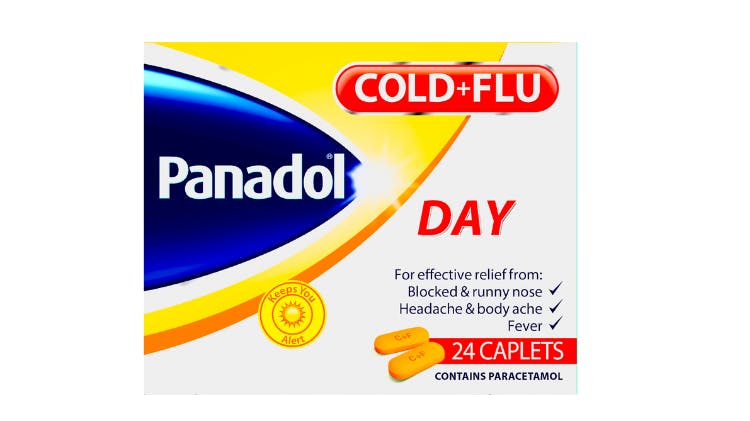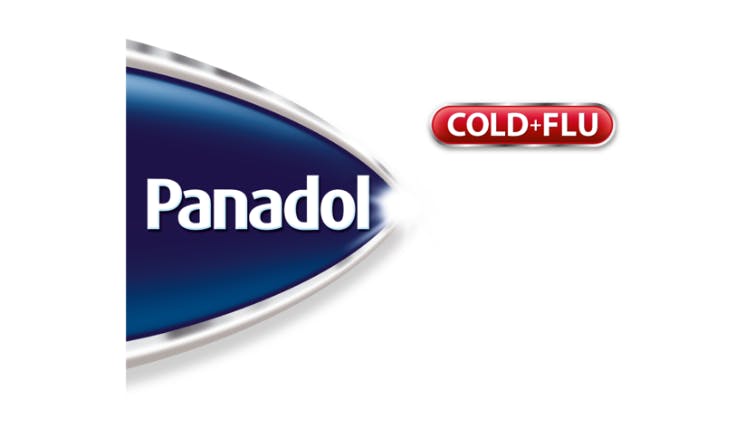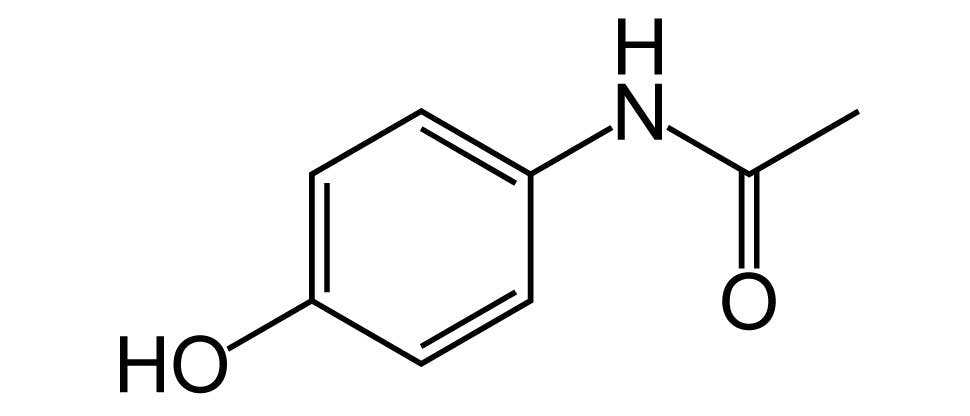Concomitant use of other sympathomimetic decongestants Phaeochromocytoma Closed angle glaucoma Known hypersensitivity to paracetamol or any of the other constituents. Hepatic or severe renal impairment, hypertension, hyperthyroidism, diabetes, and heart disease. Patients taking tricyclic antidepressants, or beta-blocking drugs and those who are taking or who have taken within the last two weeks monoamine oxidase inhibitors.
Care is advised in the administration of paracetamol to patients with severe renal or severe hepatic impairment. The hazard of overdose is greater in those with non-cirrhotic alcoholic liver disease.
Medical advice should be sought before using this product in patients with these conditions:
An enlargement of the prostate gland Occlusive vascular disease (e.g. Raynaud's phenomenon) Cardiovascular disease
This product should not be used by patients taking other sympathomimetics (such as decongestants, appetite suppressants and amphetamine-like psychostimulants) (see interactions).
Excessive intake of caffeine (e.g. coffee, tea and some canned drinks) should be avoided while taking this product.
Do not exceed the stated dose.
Patients should be advised not to take other paracetamol-containing products concurrently.
If symptoms persist consult your doctor.
Keep out of the reach and sight of children.
Consult your doctor if you are taking warfarin. Special Label Warnings
Do not take with other flu, cold or decongestant products. Do not take with any other paracetamol-containing products.
Immediate medical advice should be sought in the event of an overdose, even if you feel well. Special Leaflet Warnings Immediate medical advice should be sought in the event of an overdose, even if you feel well, because of the risk of delayed, serious liver damage.
Use with caution in patients taking the following medications:
- beta-blockers and other antihypertensives.
- tricyclic antidepressants.
- other sympathomimetics (such as decongestants, appetite suppressants and amphetamine-like medicines)
Excessive intake of caffeine (e.g. coffee, tea and some canned drinks) should be avoided while taking this product.
Keep out of sight and reach of children.1
Pregnancy & breast feeding:
This product is not recommended for use during pregnancy due to the possible increased risk of spontaneous abortion associated with caffeine consumption. This product should not be used while breast-feeding without medical advice. Caffeine in the breast milk may potentially have a stimulating effect on breast-fed infants but significant toxicity has not been observed
Overdose
Paracetamol
Immediate medical management is required in the event of overdose for the risk of liver failure, even if symptoms of overdose are not present. In massive over dosage exceeding 10g of paracetamol may cause liver damage. Early symptoms may include pallor, nausea, vomiting, (diaphoresis) and general malaise” Clinical and laboratory evidence of liver damage may not be apparent until 48 to 72 hours past ingestion. Overdose should be promptly treated by gastric lavage followed by intravenous N-acetylcysteine or methionine without waiting for the results of plasma paracetamol levels” “Additional antidote therapy is normally considered in light of further plasma paracetamol levels and the time elapsed since ingestion. In all cases of suspected overdose, prompt medical attention is critical for adults as well as for children, even if you do not notice any signs or symptoms”
Caffeine:
Overdose of caffeine may result in epigastric pain, vomiting, diuresis, tachycardia or cardiac arrhythmia, CNS stimulation (insomnia, restlessness, excitement, agitation, jitteriness, tremors and convulsions) It must be noted that for clinically significant symptoms of caffeine overdose to occur with this product, the amount ingested would be associated with serious paracetamol-related liver toxicity.
There is no specific antidote is available, but supportive measures such may be used.
Phenylephrine:
Overdose of Phenylephrine is likely to result in effects similar to those listed under adverse reactions. Additional symptoms may include irritability, restlessness, hypertension, and possibly reflex bradycardia. In severe cases confusion, hallucination, seizures and arrhythmias may occur. Treatment should be as clinically appropriate. Severe hypertension may need to be treated with alpha blocking drug such as Phentola




